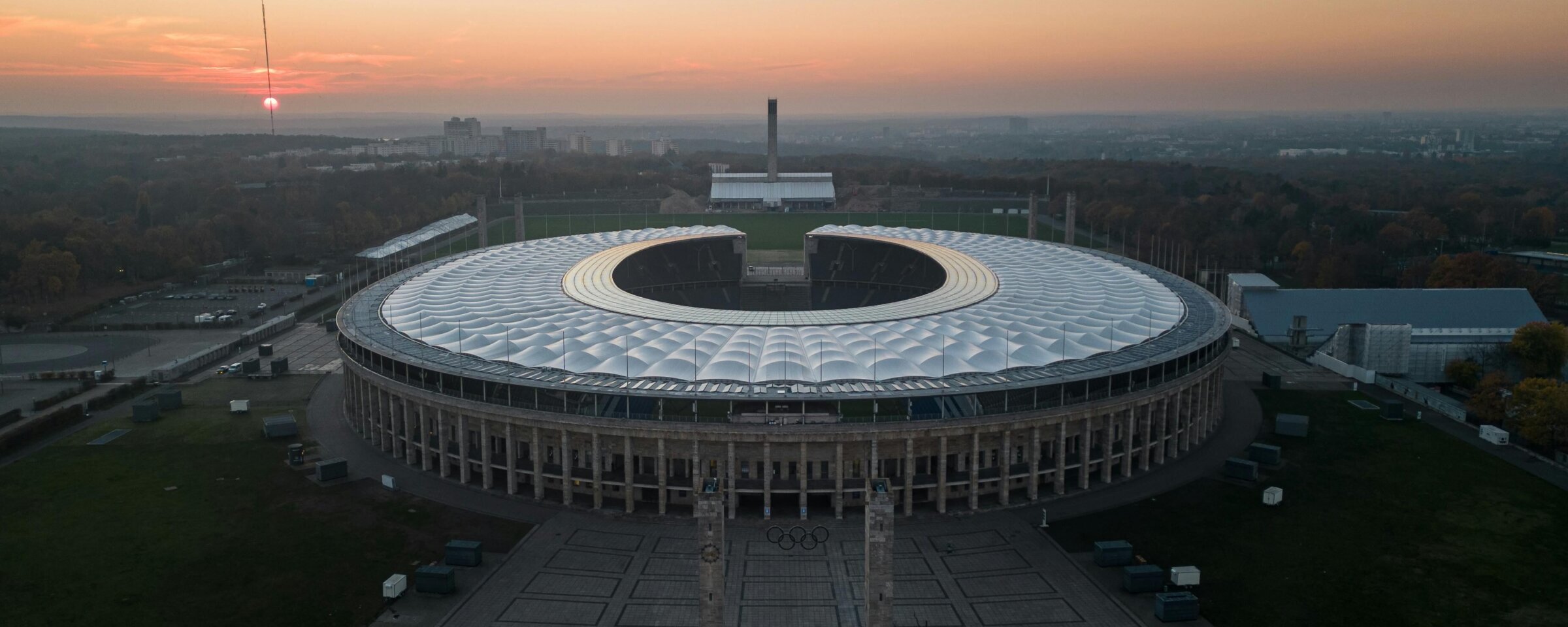Sporting events move the sports industry worldwide. Host countries, sports stores, brands and sports clubs are hoping for increased profits, more attention and greater enthusiasm for numerous sports. Major events in particular, such as European Championships, World Cups or the Olympic Games, receive international coverage and public attention. Alexander Löbe, Managing Director of ABSOLUTE TEAMSPORT, talks about the extent to which major sporting events boost the sports industry worldwide.
Major sporting events are key drivers of the sports industry worldwide. They influence trade, brand presence and the engagement of fans and consumers in a variety of ways. For brands, events like these are an incredible showcase. People’s enthusiasm for sport also has an impact on retailers, clubs and others similar. The effects are very different, as Alexander Löbe, Managing Director of ABSOLUTE TEAMSPORT, explains: “The Super Bowl, for example, receives extreme global attention, but hardly influences trade outside the USA. This is because American football is less relevant as a sport in other countries and is played by fewer people.” In Germany, for example, 20% of Germans follow American football, but only around four percent occasionally play the sport themselves. In comparison: in the USA, 74% follow the sport, while 20% play American football themselves.

Growth driver: sporting events
The impact of major events on the retail sector varies. “During the 2024 European Football Championships, for example, sports retailers only benefited disproportionately in those countries where there was sporting success. This is due to sales from merchandising articles. Otherwise, profits were similar to those of a normal year,” shares Löbe. Everyday life is determined by the normality of amateur, children’s and youth sport, national and European leagues. Löbe does not expect the 2024 European Football Championship to have any immediate long-term effects.
Compared to the European Football Championships, the Managing Director of ABSOLUTE TEAMSPORT estimates the impact of the Olympic Games on the sports retail sector to be much lower, as there is no turnover from merchandising. One possible reason for this discrepancy in the impact on retail is the different distribution of euphoria at different events. While entire nations are focused on one team over a longer period of time at the European Football Championships, for example, the euphoria at the Olympic Games is spread across many different sports and athletes. According to Löbe, the focused enthusiasm outside of the host country, as is the case at the European Football Championships, only works “in exceptional cases and with exceptional athletes, such as in Serbia with tennis player Novak Djokovic or in Germany with Angelique Kerber’s victory at Wimbledon 2018.”
Gymnast Simone Biles also made a significant contribution to the general enthusiasm for her sport. The gymnastics icon inspired many women to take up artistic gymnastics and made women of color (WOC) more visible in the discipline. As a result, American gymnastics clubs have seen an increase in the number of young girls of color who have wanted to emulate her role model in recent years. In 2021, five years after Bile first competed in the Olympics, more than half of the applicants for the US Olympic women’s gymnastics team were WOC. This shows the downstream impact of enthusiasm on trade: growing communities of individual sports require more equipment and use this consumption to further boost the sports economy.

Enthusiasm for sport pushes local clubs
Local sports clubs that purchase equipment for their activities are important for sports retailers. Growing communities of sports enthusiasts as a result of major events encourage the growth of local clubs, as shown by rising membership figures. However, the significance of this effect – and therefore its resulting impact on sports retail – depends heavily on the success and visibility of the event. “In principle, successful sports results increase interest in the respective sport and in clubs,” says Löbe, adding: ”However, there are regional differences in the general enthusiasm for sport.” This could be due to the importance that individual countries attach to sport.
In 2016, the University of Vienna developed the European Sport Index to measure the social significance of sport. According to the study, a comparison across Europe showed that some countries, such as Sweden and Germany, have a high level of participation in sport among the population and have achieved many successes at the Olympic Games. Other countries, such as Bulgaria, attribute a lower role to sport. If a country has more sports facilities, more sports clubs, more sports club members and more people who play sports, this has an impact on sports retail: high demand for sportswear, shoes and other equipment, such as balls or sports tape, boosts sales. Löbe also notes cultural differences in the organization of clubs: “In the USA, for example, club sports are already promoted at school through numerous club offerings. In comparison, the range of clubs in European countries primarily takes place in private life.” This difference could also lead to different levels of enthusiasm for sport and mixed growth in local clubs – and therefore shapes the differing demand for sports equipment in individual countries.
Sport connects
As major sporting events take place at recurring intervals, they always provide impulse for trade. Beyond the economic framework, they also bring added human value: global connection. “Whether it’s the Olympic Games or various world championships, they are a central part of our global culture, promote sporting competition and bring many people to sport. It also creates a sense of international community,” says the Managing Director, and he continues: ”Nations from all over the world come together to compete. This promotes mutual respect.” Major events with international attention also have a creative potential that goes beyond the boundaries of sport. Diversity and inclusion are tangible. These events reach different people from different social backgrounds and nations. They pass on enthusiasm for movement and global cohesion to future generations. And that connects.

Alexander Löbe – CEO of Absolute Teamsport
Picture Rights: Barry Talley & Dario Rawert (Pixxio) / Pixxabay (Pixxio) /SPORT 2000




